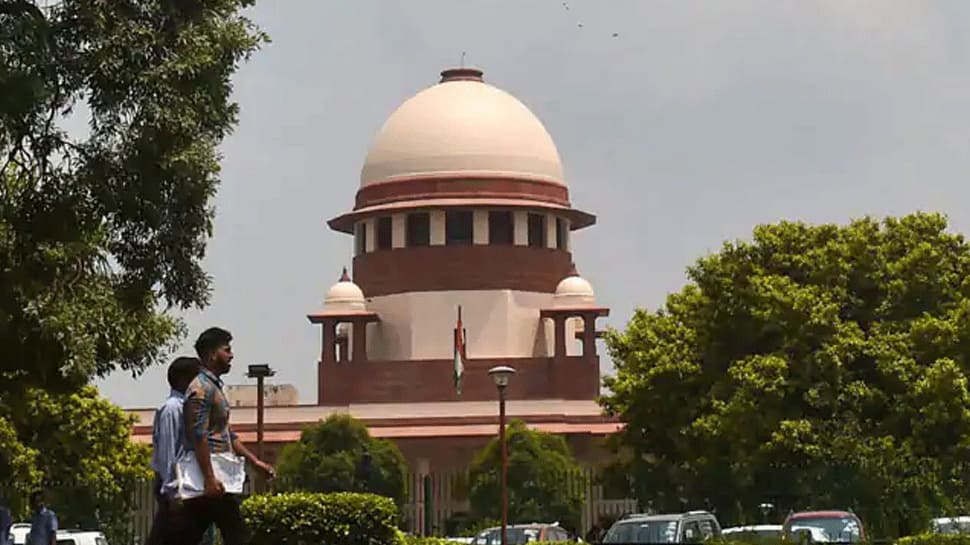NEW DELHI: In its path-breaking ruling, the Supreme Court on Wednesday put on hold the sedition law, stayed the registration of new FIRs, ongoing probes and coercive measures on the matter across the country until an "appropriate forum" of the government re-examines the colonial-era penal law.
Delivering the historic order on the British-era law that has been under intense public scrutiny, a Supreme Court bench headed by Chief Justice N V Ramana said, “there was a need to balance the interest of civil liberties and interests of citizens with that of the state.” The top court listed the matter in the third week of July and said its directions shall continue till further orders.
In response, the Centre told the Supreme Court that it would send guidelines, if approved, to the states and union territories for preventing abuse by ensuring that the FIR in sedition cases would be registered only after a superintendent of police rank officer is satisfied with the merits of the allegations. The response was filed and read over by the Solicitor General Tushar Mehta to a bench comprising Chief Justice N V Ramana and Justices Surya Kant and Hima Kohli.
What is the sedition law?
The 152-year-old section 124A of the Indian Penal Code defines sedition as: “Whoever, by words, either spoken or written, or by signs, or by visible representation, or otherwise, brings or attempts to bring into hatred or contempt, or excites or attempts to excite disaffection towards, the Government established by law in [India], shall be punished with [imprisonment for life], to which fine may be added, or with imprisonment which may extend to three years, to which fine may be added, or with fine.”
The law was used by the British to imprison freedom fighters in India, including Mohandas Karamchand Gandhi. It was drafted by Thomas Babington Macaulay and included in the IPC in 1870.
Punishment in sedition cases
It is a non-bailable offence. Punishment under Section 124A ranges from imprisonment up to three years to a life term, to which a fine may be added. A person charged under this law is barred from a government job. They have to live without their passport and must produce themselves in the court at all times as and when required.
Top highlights of the SC order on sedition law
Following are the top highlights of the Supreme Court's historic order putting in abeyance the 1890 colonial-era penal law on sedition, lodging of FIRs, and consequential proceedings under it across the country:
-Taking note of the concerns of the Centre, the apex court said the ‘rigours of Section 124A (sedition) of the IPC is not in tune with the current social milieu’ and permitted reconsideration of the provision.
-The bench, also comprising Justices Surya Kant and Hima Kohli, directed the Centre and states to not register any fresh FIR invoking sedition charges until the sedition law is "under reconsideration".
-SC took note of the May 9 affidavit of the Ministry of Home Affairs (MHA) acknowledging the divergence of views expressed in the public domain by various jurists, academicians, intellectuals, and citizens in general.
-The CJI-led bench permits Centre to reconsider the law after also taking note of part of the affidavit referring prime minister's clear and unequivocal views in favour of protection of civil liberties, respect for human rights, and giving meaning to the constitutionally cherished freedoms by the people of the country.
-SC order takes note of PM's view referred to in the affidavit that India as a nation has to work harder to shed colonial baggage that has passed its utility, which includes outdated colonial laws and practices.
-The order agrees to the Centre's view of reconsideration of provision by its appropriate forum in view of the bench's prima facie opinion that the rigours of Section 124A of IPC are not in tune with the current social milieu, and was intended for a time when this country was under the colonial regime.
- The order said the top court was cognizant of security interests and integrity of the State on one hand, and the civil liberties of citizens on the other and terms the act of balancing as ‘difficult’.
-The SC order refers to Attorney General K K Venugopal who, on an earlier date of hearing, had given instances of glaring misuse of this provision, like in the case of recital of the ‘Hanuman Chalisa'.
-The order said it expected that till re-examination, the provision will not be used by the governments. It said interim stay, granted to some petitioners on May 31, 2021, shall continue to operate till further orders.
-It said states and Central Government will be restrained from registering any FIR, continuing any investigation, or taking any coercive measures by invoking Section 124A of the IPC while the provision is under consideration.
-It said if any fresh case is registered under Section 124A of IPC, the affected parties are at liberty to approach the concerned Courts for appropriate relief. The Courts are requested to examine the reliefs sought, taking into account the present order passed as well as the clear stand taken by the Centre.
-All pending trials, appeals, and proceedings with respect to the charge framed under Section 124A of IPC be kept in abeyance. Adjudication with respect to other Sections, if any, could proceed if the Courts are of the opinion that no prejudice would be caused to the accused, it said.
-Additionally, it permitted the centre to issue the directive as proposed to the states, and union territories (UTs) to prevent misuse of the provision.
(With Agency Inputs)
















